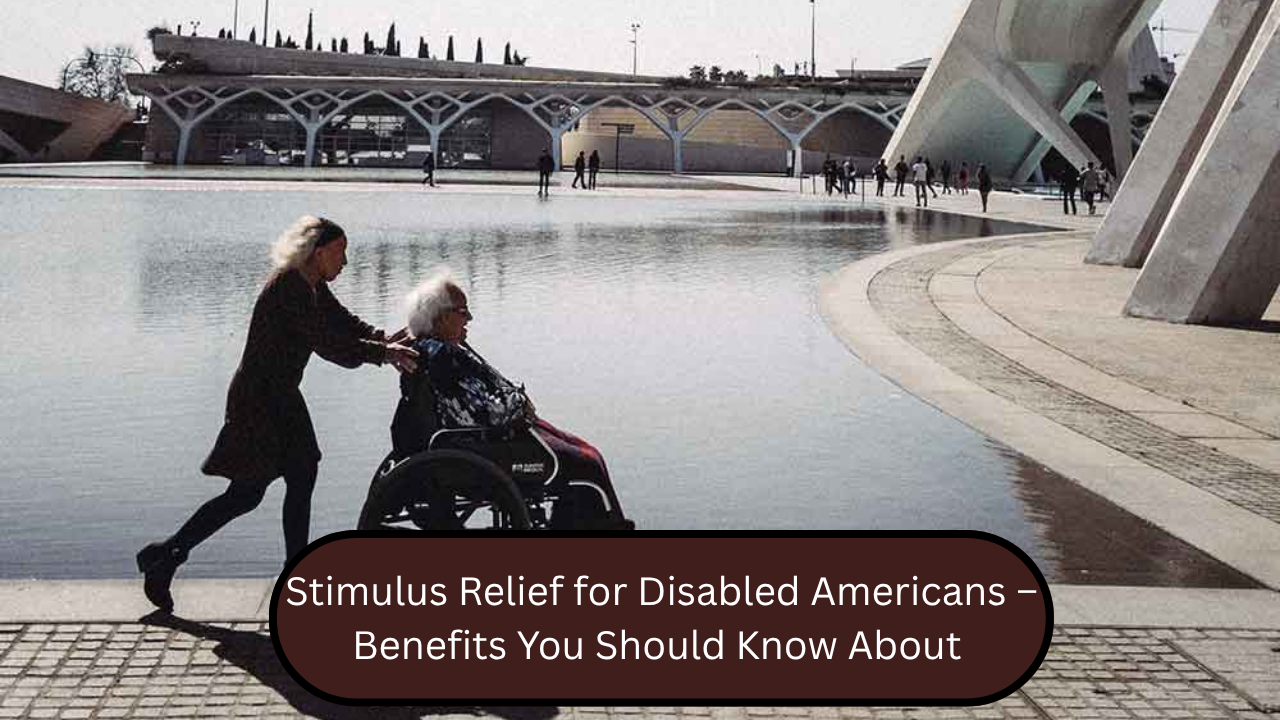During tough times—like the COVID-19 pandemic—governments offer financial help to people in need. For millions of Americans living with disabilities, these relief programs can provide much-needed support. But many people don’t know which benefits they qualify for, or how to apply. Whether you’re receiving Social Security Disability Insurance (SSDI), Supplemental Security Income (SSI), or other disability benefits, it’s important to understand what relief is available and how to claim it. This article explains the key stimulus and financial support options that disabled Americans should be aware of.
Stimulus Payments and Disability Benefits
The federal government has issued several rounds of stimulus payments (also called Economic Impact Payments) since 2020. The good news is that most disabled Americans were eligible, even if they didn’t work or file taxes.
- If you’re receiving SSDI or SSI, you likely got stimulus payments automatically.
- If you didn’t receive a payment, you can still claim it as a Recovery Rebate Credit by filing a tax return—even if you have no income.
- The payments did not count as income and did not affect your disability benefits, housing assistance, or food stamps (SNAP).
Many people missed out simply because they didn’t know they needed to file or update their bank info. That’s why checking your IRS account or visiting a tax preparer can help ensure you get what you’re owed.
Additional Relief Programs for Disabled Individuals
Beyond the stimulus checks, several other government and nonprofit programs offer support for disabled people:
- Emergency Rental Assistance: If you struggled to pay rent due to COVID-related income loss, you may still qualify for help.
- SNAP and Food Assistance: Income limits are higher for disabled persons, and some states offer emergency benefits or expanded programs.
- Utility Support: Many states and cities offer help with electricity, water, or internet bills.
- Medicaid and Healthcare Help: If you receive SSI or meet income guidelines, you may qualify for free or low-cost healthcare through Medicaid.
You can check benefits.gov or your state’s Department of Human Services to explore these programs.
How to Apply for Relief If You Missed Out
Even if the original stimulus programs have ended, you can still claim past benefits. For example:
- If you missed your first, second, or third stimulus check, you can file a simple tax return to claim the Recovery Rebate Credit.
- You can use IRS Free File or get help from a local Volunteer Income Tax Assistance (VITA) center.
- Make sure the IRS has your correct mailing address and bank details.
It’s also important to regularly update your information with the Social Security Administration (SSA) if you receive SSI or SSDI.
Living with a disability can bring many challenges—especially during difficult economic times. Thankfully, the U.S. government and local agencies have created several programs to help. From stimulus checks and rent relief to food assistance and Medicaid, there are many benefits available that don’t interfere with your current disability income. The key is to know your rights, understand what you’re eligible for, and take action to apply or claim missed payments. Even if you think you missed your chance, it’s not too late to get the help you deserve.
FAQ’s:
Q1. Can I still get a stimulus check if I’m on disability?
A1. Yes, most people on SSDI or SSI were automatically eligible. If you didn’t get one, you may be able to claim it through the IRS.
Q2. Will getting a stimulus check affect my SSI or SSDI benefits?
A2. No. Stimulus payments do not count as income or a resource, so they will not affect your benefits.
Q3. I didn’t file taxes. Can I still get past stimulus payments?
A3. Yes. You can file a 2020 or 2021 tax return and claim the Recovery Rebate Credit to receive your missed payments.
Q4. Where can I get help applying for these benefits?
A4. Free help is available through VITA centers, disability advocacy groups, or your local Social Security office.
